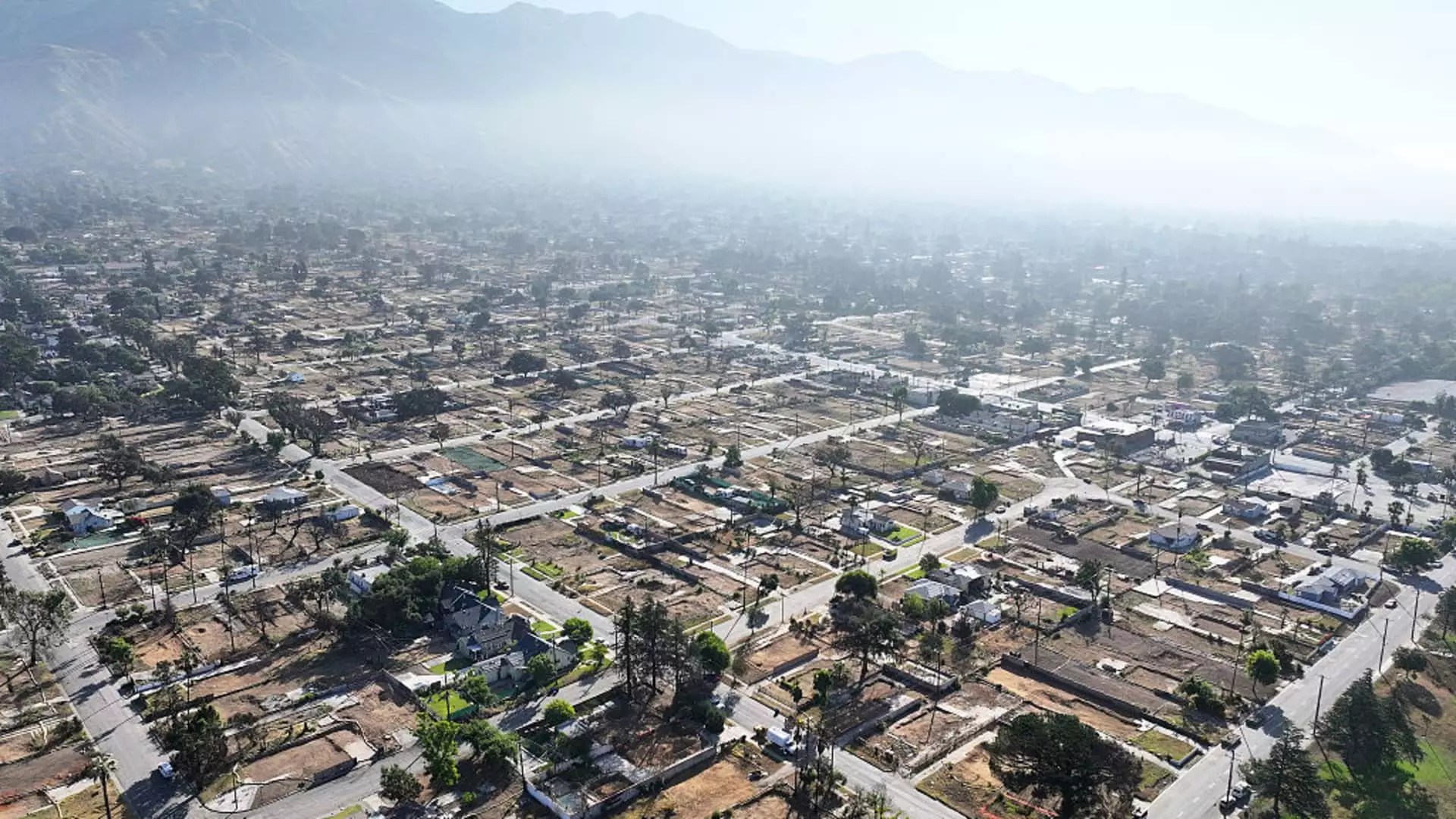In the aftermath of California’s devastating wildfires, a glaring loophole in the protection of homeowners’ financial interests has come to light. Traditionally, insurance settlements for damaged or destroyed homes are sent jointly to homeowners and their lenders. This practice, rooted in longstanding escrow arrangements, often leaves homeowners in a precarious position. While their insurance claims sit in escrow, lenders uninterruptedly earn interest on the funds—interest that, more often than not, is kept by the financial institutions rather than returned to those who desperately need it most.
This system betrays the very trust that underpins homeownership. When disaster strikes, homeowners are left navigating the chaos of rebuilding, yet the financial structures designed to support them seem to prioritize the lenders’ profits over their immediate needs. This unfairness exposes a fundamental flaw—homeowners are collateral for their own recovery, with the banks capitalizing on their misfortune without due accountability.
Legislative Efforts: A Step Toward Justice or a Band-Aid?
California has taken a crucial step by passing a bill that mandates lenders to allocate at least 2% annual interest on insurance payout funds held in escrow, directly benefitting homeowners. This legislation addresses a clear imbalance, recognizing that interest earned during the escrow period should rightly be appropriated to those who lost their homes, not the banks. While the gesture is symbolic of a broader shift toward homeowner protection, it also raises questions about the sufficiency of such measures.
The bill’s focus on interest accrual signifies an acknowledgment of systemic injustice, but it also highlights how precariously homeowners have historically been placed at the mercy of financial institutions. The fact that it takes legislative action to correct a clear market failure underscores the risk of leaving vital homeowner protections to the mercy of profit-driven lenders. The move to include existing escrowed funds and newly escrowed amounts demonstrates a commitment to rectifying past and ongoing injustices, yet it also exposes how largely unregulated the relationship between insurers, lenders, and homeowners has been.
Center-Left Perspectives: A Necessity for Fairness and Economic Stability
From a centrist liberal perspective, the California bill exemplifies the importance of striking a balance between the interests of private corporations and the rights of ordinary citizens. It is a recognition that markets must be subject to sensible regulations to prevent exploitation, especially during vulnerable times. Humanitarian concerns should not be subordinate to the bottom line; instead, policies should prioritize fairness, transparency, and community resilience.
This legislation is also a step towards strengthening societal trust in financial and insurance institutions. When banks are allowed to profit from homeowners’ misfortune without accountability, it erodes confidence in the system. Conversely, when laws enforce equitable treatment, they reinforce the idea that the economy should serve the people, especially during their most critical moments of rebuilding.
The legislation’s emphasis on minimum interest guarantees is a modest but impactful reform—yet, it also invites reflection on what more can be done. Shouldn’t the system be designed to prevent such loopholes altogether? The fact that homeowners had to rely on legislative intervention suggests that regulatory oversight has been woefully inadequate.
Making lenders accountable and transparent isn’t merely about fairness; it’s about fostering a sustainable and humane economic environment. After all, when communities rebuild stronger and trust in institutions is restored, everyone benefits. Policymakers should see these changes as a foundation for more comprehensive reforms that prioritize homeowners over profits and aim to create equitable recovery pathways in future disasters.
While this bill marks positive progress, it is arguably only the beginning of a broader cultural and legislative shift needed to place homeowners at the center of disaster recovery policy. The ongoing challenge remains: how to ensure that the system genuinely prioritizes human needs and does not merely pay lip service to fairness. As climate change intensifies and natural disasters grow more frequent, legislative bodies—guided by center-left values—must push for more holistic reforms that safeguard vulnerable populations and prevent profiteering from tragedy. Only then can recovery be truly equitable, resilient, and just.

